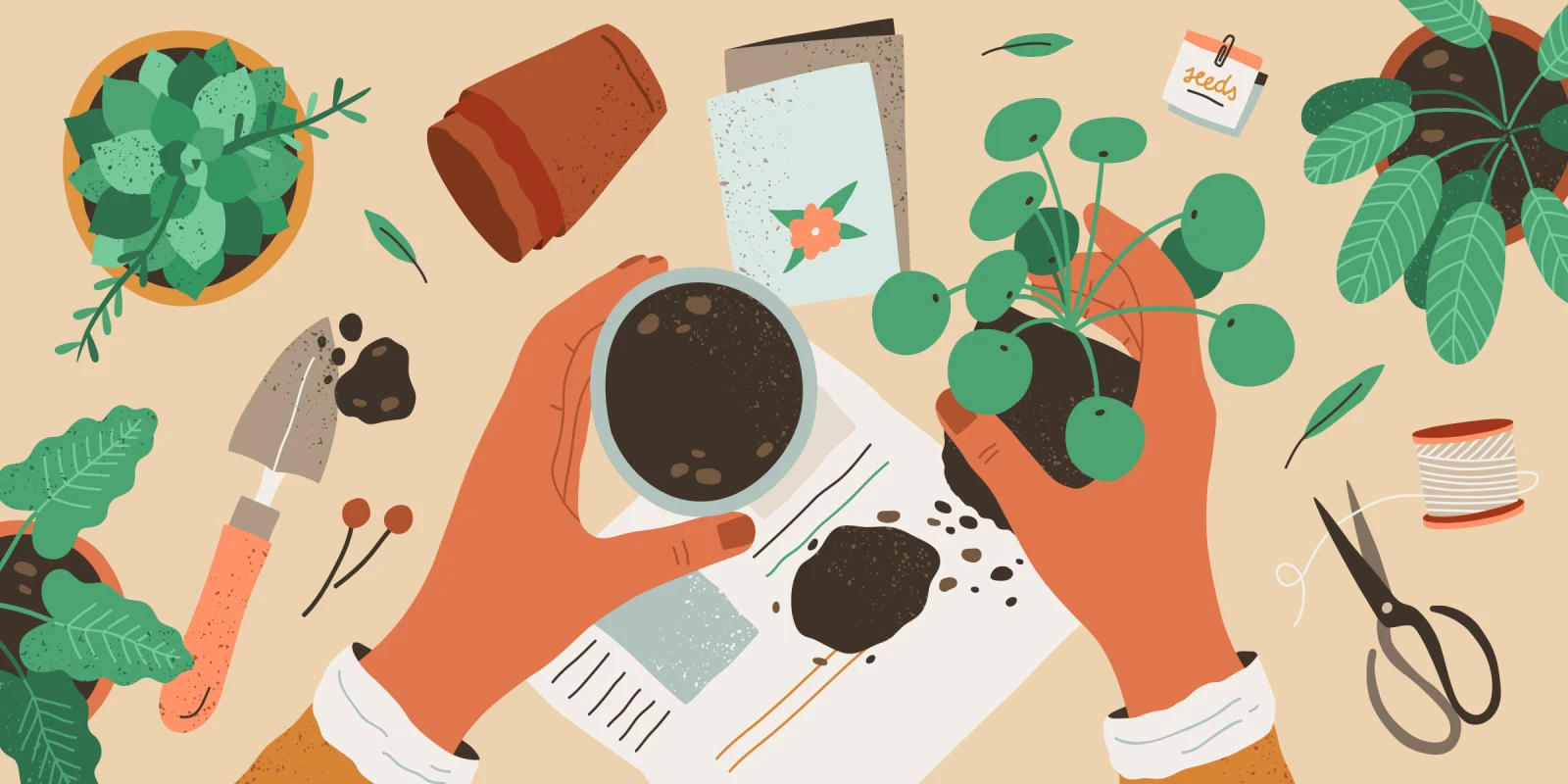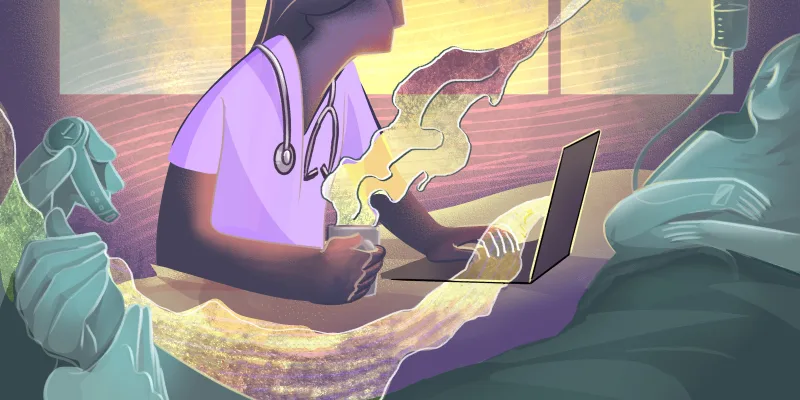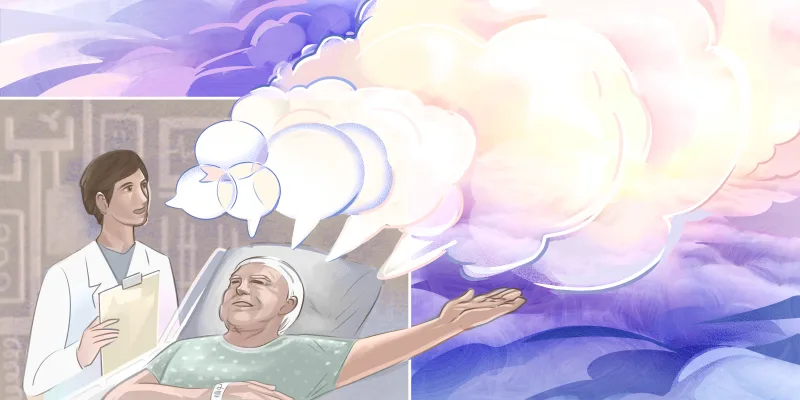Since I was a child, I have always had a fascination with plants. The process, as a kid, of watching a small, seemingly lifeless seed turn into colorfully robust vegetation jump-started my innate interest in the natural world. I have no doubt that this childhood curiosity was a steppingstone to developing a passion for scientific knowledge. Today, that decades-old admiration has turned into a vegetable garden.
In medical school, we are lectured about the importance of having a hobby. These hobbies help keep us from burning out by giving us a sense of normalcy reminiscent of our pre-med days. This is what gardening is for me. But the garden is also my teacher, or rather, my professor. Every day, whether I am digging my hands in the soil or simply appreciating the greenery around me, I am learning. It is only natural for lifelong learners, especially those in the field of medicine, to search for lessons in nature. Our station in life will also influence how we use those lessons to our advantage. As a medical student, I try to acquire every ounce of wisdom that will help me become a better doctor; thus, every lesson that my garden teaches me I consciously apply to my future as a clinician. Below are some of the lessons I have gleaned.
Create the Right Foundation
Any gardener knows the importance of their soil’s composition. You need to have the right amounts of organic matter, nutrients, minerals, fungi, and bacteria to give your plants the best foundation to grow. If you have low-quality soil, your plants may sprout, but they will not reach their peak health. Throughout the season, you must also add fertilizer and minerals, as your vegetables consume what the soil originally contained.
Likewise, our patients need the right foundation to reach their peak health. Comprehensive health education from preschool and beyond (akin to high-quality soil) and increased access to health care resources (akin to fertilizer and minerals) are two major contributors to creating a healthy base for patients to grow. Making scientifically supported health education an integral part of younger generations’ development will allow these patients of the future to start their health journeys on solid footing. If these future patients follow the health lessons they have been taught, they will not only sprout but thrive.
However, if these future patients do not have a way to access health care (via technology platforms and enabled communication, say), they are at risk of not reaching or maintaining their optimal health. This access is crucial: It will make patients more visible to their clinicians, who in turn can fine-tune treatment plans to ensure patients reach their health goals.
The garden has reminded me that in order to help our patients grow and maintain their health for longer periods of time, we must grant them solid ground beneath their feet and a clinician who can help them when needed.
Be Patient
If one thing is certain, patience truly is a virtue, and it’s a skill that both gardeners and clinicians must possess. The worst part of early gardening season is waiting for the last frost to pass. As each day goes by, a gardener checks the local weather to see when the low temperatures will consistently be above freezing. The gardener puts the seedlings in the ground, confident that winter is finally over. A week later, a late frost decides to come in, decimating all the new sprouts. Impatience has cost me many plants. Not having patience could be costly to my patients, too.
One of the most difficult aspects of patient education is convincing patients to change unhealthy habits. According to a 2016 study published in BMJ Open, it takes on average 30 attempts to stop smoking before successfully doing so. Similarly, according to the National Institute on Drug Abuse, 40% to 60% of patients relapse after completing substance use disorder treatment. Does every clinician just give up on these patients after the first relapse? Of course not. If they did there would undoubtedly be higher rates of lung cancer and substance use disorder today. Clinicians know that patience is key to changing patient behavior. People who have successfully made healthy behavior changes typically go through successive stages that may take years to complete. Gardeners can’t give up on their crop just because some plants are having a difficult time growing.
Learn from Failure
“I have not failed. I’ve just found 10,000 ways that won’t work.” This famous Thomas Edison quote encompasses life in both the garden and in medicine. When I first started my garden, I made many mistakes, some of which ruined any chances of a successful harvest. With each error I made, a lesson was learned ― albeit a frustrating one― and thus I became a more proficient gardener. Clinicians, too, make mistakes. We must acknowledge this fact from day one of our schooling. Failure is an integral part of medicine. What sets successful medical students and clinicians apart from those who are not successful is the ability to learn from that failure. Not doing so can have detrimental effects not only on performance, but also on patients. Thanks to the many “learning opportunities” I have had while growing my vegetables, I know that if I do fail at an aspect of gardening, I can always try something different next season. This is the mindset all clinicians should bring to their practice.
Accept Death
The worst part of gardening is knowing that sometime during fall, the gardening season will end. The frost will come and wipe out your plants’ chances of producing anything more than scrap for the compost pile. It’s an inevitability that is beyond anyone’s control, no matter how skilled they are as a gardener.
Paraphrasing Elton John, it takes only one insect to create an empty garden. A patient’s death is not necessarily your failure. I have performed CPR on well over 100 patients, with an estimated 10% making it to discharge. Accepting a patient’s end is the hardest part of being a clinician. No matter how many patients you lose over the years, you always ask yourself, “What could I have done better?” or “What did I do wrong?” or, in my case, “Were my compressions deep enough and at the correct rate?” To be completely honest, I don’t know if this lesson is one I can truly reconcile. The gardener in me doesn’t want to acknowledge the end. Even so, the frost does come, and it’s a force that we all must come to terms with.
The garden has taught me many lessons that will make me a better clinician. Surely, these lessons could be learned via other hobbies. My hope is that every medical student and clinician can find a “garden” of their own.
What lessons have you learned outside of the medical profession that have made you a better clinician?
Austin Miller is a second-year medical student at the Ohio University Heritage College of Osteopathic Medicine in Dublin, Ohio. He is currently interested in pursuing a career in otolaryngology.
Image by GoodStudio / Shutterstock





